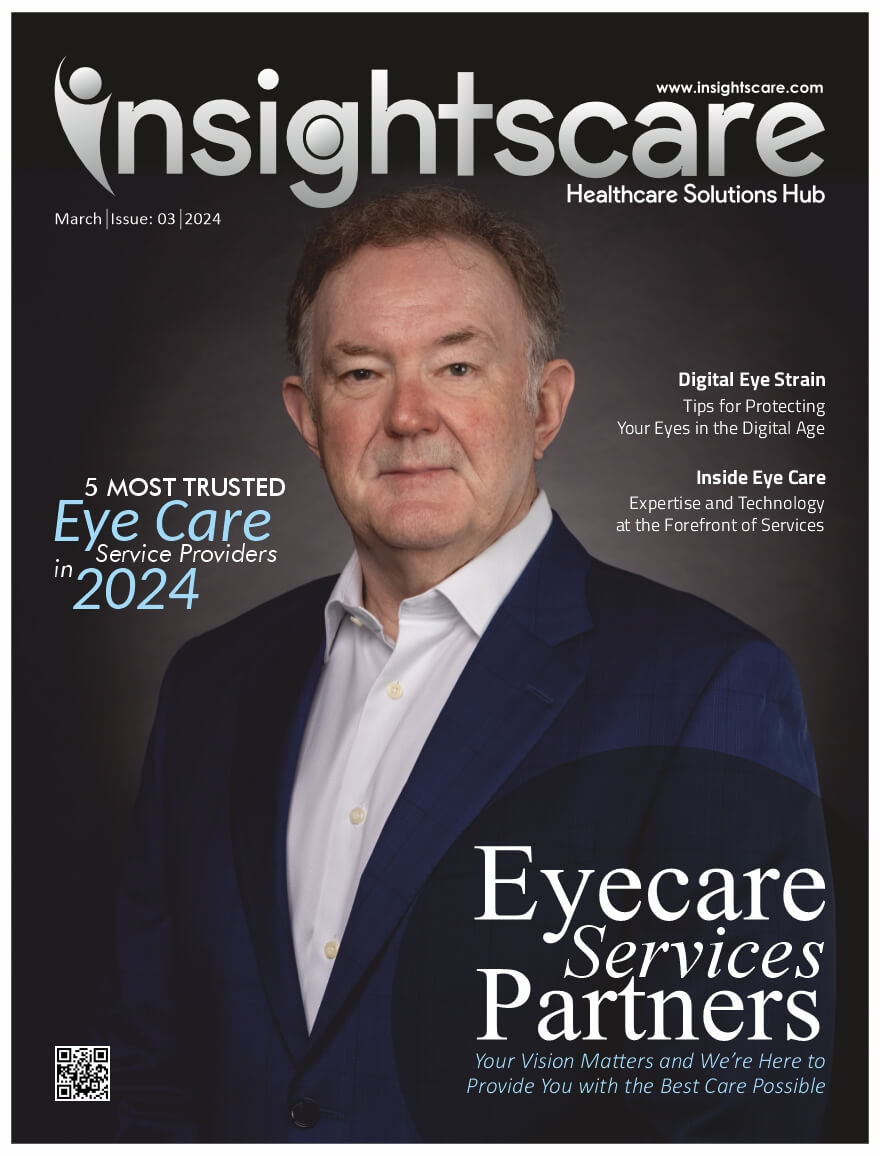Cancer is an ailment that affects the social fabric of millions of families, as it seems to have reached epidemic proportions over recent years.
Understandably, the ‘C’-word causes more fear and anxiety than most other ailments today, often dampening spirits and dashing hope. It is a disease that has dominated much of the healthcare efforts of the 21st century.
On the brighter side, medical solutions providers are fighting tooth and nail, driving a positive change, to counter this serious challenge and overcome its adversities. One of the key challenges in the fight against cancer is improving the ability to detect cancer at its earliest stages when patients have the best chance for survival. There is an immediate need for diagnosing and detecting the malignancy when it is more treatable, and outcomes are better.
Recognizing this very need for early detection Imagion Biosystems Ltd is attempting to become a leading player in the healthcare space. With a multidisciplinary team and a mission to make cancer more detectable, the company is implementing advanced technology to detect cancer with better specificity and sensitivity than conventional imaging technologies.
Under the proficient leadership of Robert Proulx, CEO, Imagion Biosystems combine molecular targeting with nanotechnology and enables advancements in image analysis through machine learning and AI—the company aims to detect cancer at its earliest stages non-invasively without using radiation.
In the following interview with Insights Care, Robert Proulx sheds light on the company’s journey showcasing the current industry scenario, and his opinions on the company’s future.
Below are the interview highlights:
Please brief our audience about Imagion Biosystems, its USPs, and how it is currently positioned as a reliable firm in the healthcare sector.
Imagion Biosystems is developing improved diagnostic imaging and therapeutic products based on our proprietary magnetic nanoparticles. Our nanoparticle technology uses biosafe materials to non-invasively detect or treat diseased tissues, like cancer, while avoiding the use of radiation or radiotracers. By focusing on the use of magnetic nanoparticles we believe we can deliver improved diagnostic imaging methods that work within existing clinical care workflow and are better for the patient.
Shed some light on your offerings and how they impact the industry and your clients.
Today, globally, we spend over $100B annually to diagnose cancers, but we still don’t catch them early often enough. Imaging technologies provide good anatomical images but are not capable of differentiating benign from malignant lesions and often require the use of radioactivity.
Certain cancers like pancreatic or ovarian cancer are too often detected way too late because they are asymptomatic, and current imaging methods are not well suited for identifying these tumors. In other cases, like prostate cancer, we have screening tools but with high false negative and false positive readings resulting in missed diagnoses and unnecessary biopsies.
Our first diagnostic imaging product aims to improve the ability to identify metastatic breast cancer by non-invasively detecting if the tumor has spread to the lymph nodes. Today the standard of care for nodal staging is a biopsy procedure, with approximately half of all patients having a negative test, meaning they had to have a biopsy to find out nothing was there.
Using our MagSense® targeted nanoparticles could reduce the need for biopsy procedures and save many patients from having to have lymph nodal biopsies and the concomitant pain and morbidity associated with nodal lymph surgeries. This product has been designated by the U.S.FDA as a breakthrough device because of its potential to change patient care in the nodal staging of breast cancer.
Being an experienced leader, share your opinion on how the adoption of modern technologies and platforms has impacted the diagnostics space and how is your company riding the technology wave?
Firstly, we should recognize that the healthcare industry is generally conservative in its adoption of new technologies. Healthcare practitioners and payers are cautious about changing existing practices and standards of care, so any new technology will take time to be adopted. But recent advances in two areas may be of interest to Imagion’s efforts.
We think the recent advances in blood-based testing for circulating tumor cells and nucleic acids bode well for earlier detection of patients who may be developing cancer. Early warning signs in the blood would be a good indication that an Imagion imaging test could help identify if the specific cancer of concern is present.
Combined with advances being made in image analysis through machine learning and AI, we hope that we can make cancer detectable at its earliest stages when they are more treatable, and outcomes are better.
What would be your advice to budding entrepreneurs who aspire to venture into the healthcare space?
It is a very gratifying area to work in. It is very motivating and rewarding to know that what you are working on could impact patients’ lives. But it is also a hard industry to work in and is heavily regulated. Unlike FinTech or other tech sectors, the regulatory oversight in the medical industry is pervasive.
Additionally, better technology, by itself, may never make it to the market, so you really must do your homework. Identifying unmet medical needs and then identifying how you are going to solve that problem in a commercially scalable and market-acceptable way is key, and you must be in it for the long haul.
How do you envision scaling your organization’s operations and offerings in 2022 and beyond?
We are anticipating growing the organization to prepare for the next phase of development. At the beginning of 2022, we moved into a new facility that gave us expanded R&D capabilities and increased nanoparticle manufacturing capacity. Our goal would be to have multiple imaging products in our pipeline advancing into clinical studies and have the organizational infrastructure to support larger studies and early commercial production.
About the Leader:
CEO Bob Proulx has more than 30 years of experience in the development and commercialization of novel life science tools and medical device/diagnostic products. Having joined the company in 2015, Bob led the restructuring and refinancing of the company to create Imagion Biosystems and undertake an IPO on the Australian Securities Exchange. Under his leadership, the company is now a clinical-stage company with multiple products in the R&D pipeline.
Exemplary Expertise:
I think the fact that the FDA designated our MagSense® HER2 Breast Cancer product as a Breakthrough Device speaks volumes. The Breakthrough Device program is reserved for those medical device technologies that are considered to “provide for more effective treatment or diagnosis of life-threatening or irreversibly debilitating human disease or conditions” and either address an unmet need or offer a significant advantage over existing products.
The recognition by the FDA of the potential for our MagSense® technology in breast cancer care is very gratifying. Another example comes from the MD Anderson Cancer Center, the world’s leading cancer research and treatment institution. Early on, we established a scientific collaboration with the Department of Imaging Physics at MD Anderson, and along the way, the institution converted a portion of our sponsored research funding into shares in the company. They have continued to hold those shares, and we consider having them as a shareholder a privilege.












